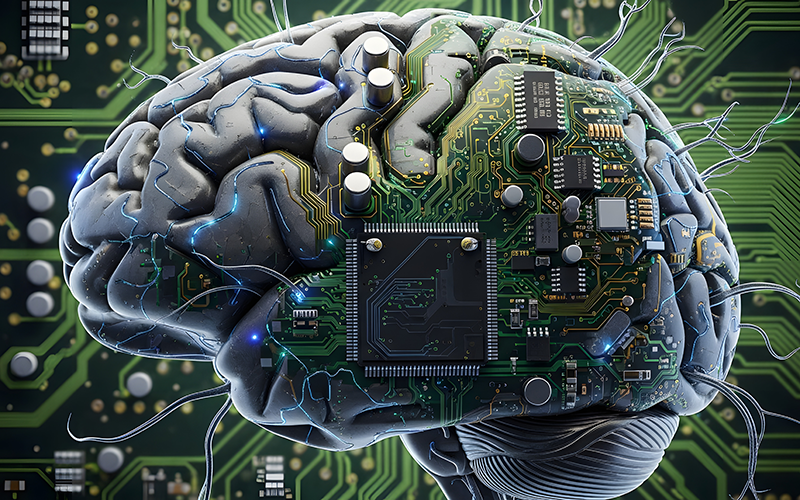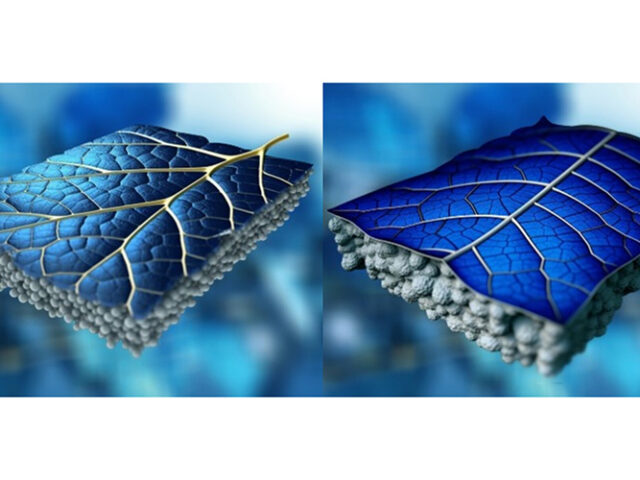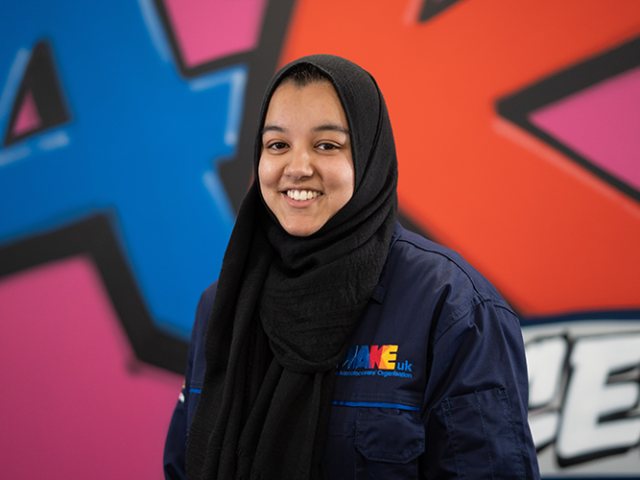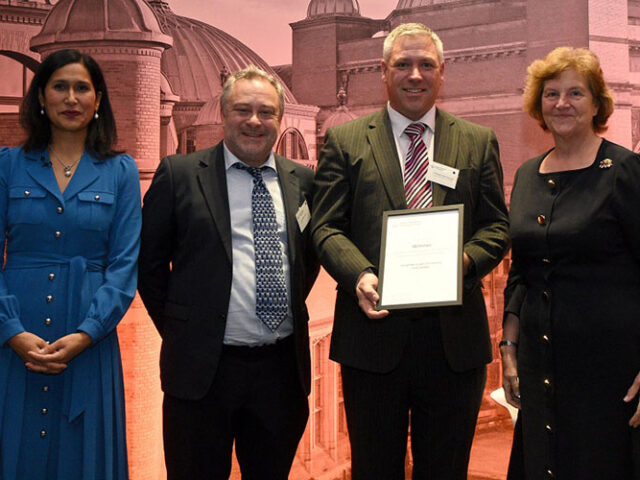Imperial researchers will be part of a new Innovation and Knowledge Centre (IKC) for neuromorphic – or brain-inspired – computing hardware.
The centre, known as Neuroware, is being supported by £12.8 million from the Engineering and Physical Sciences Research Council (EPSRC).
Led by University College London (UCL) it will launch in October 2025, and over the next five years will accelerate the development and commercialisation of next generation computing technologies that mimic how the brain processes information.
The IKC will bring together researchers from across the UK, including the universities of Cambridge, Oxford, Manchester, Sheffield, Imperial College London, King’s College London, and Strathclyde, as well as the National Physical Laboratory.
Together, they will drive innovation across a range of chip technologies and the supporting software – from today’s silicon-based processors, to emerging materials for future chips, and light-based (photonic) neuromorphic platforms.
Imperial’s role will be led by EEE Professors George Constantinides (PI), Christos Bouganis, and Tim Constandinou.
Thinking differently about computing
Neuromorphic computing is an approach to computation that takes inspiration from the brain’s structure and function to deliver efficient, high processing performance with dramatically lower power consumption – a key challenge for the future of computing in an AI-enabled world.
Professor Constantinides explains: “Current computer designs still follow the body-and-brain split introduced by John von Neumann in the 1940s: memory is separate from the processor, and data must endlessly shuttle back and forth. This ‘memory bottleneck’ is emerging as a critical speed and energy barrier especially in AI because feeding and moving vast model parameters slows everything down and burns power. In a world where artificial intelligence demands near-instinctive, real-time data crunching, we need systems that think and act more like brains – integrating memory and computation to bypass this processing roadblock. That’s why researchers are exploring in-memory, neuromorphic, and other non von Neumann architectures – to build machines that can learn smarter, faster, and greener.”
Imperial expertise
Imperial’s initial portion of the grant will help develop design methods, software tools, and new custom hardware, building on the Department’s world-leading expertise in non-von Neumann computation.
Professor George Constantinides specialises in software design tools and methods that help map brain-inspired algorithms on to new types of hardware.
George has pioneered tools and methodologies for digital design optimisation and efficient hardware compilation, with technologies adopted in leading EDA toolchains and deployed in global semiconductor companies. This expertise in high-level synthesis, reconfigurable computing, and non-von Neumann architectures directly supports the IKC’s mission to create energy-efficient, application-driven neuromorphic hardware.
Professor Tim Constandinou works at the interface of hardware and neuroscience, developing custom chips and devices that directly mimic neural behaviour.
Tim brings world-leading capability in neural interfaces, bio-inspired electronics, and ultra-low-power chip design, underpinned by patents and successful spin-outs in neural microsystems.
His work ensures the IKC can translate insights from neuroscience into manufacturable, implantable, and embedded neuromorphic systems.
Professor Christos Bouganis focuses on reconfigurable hardware platforms (such as FPGAs), where new architectures can be tested, refined, and prototyped.
Christos contributes specialist knowledge in FPGA prototyping, adaptive computing, and system-level integration, bridging the gap between device-level innovation and large-scale demonstrators.
Together, the EEE team positions Imperial as a key partner in the IKC, enabling the translation of cutting-edge research into applications for high-impact neuromorphic technologies.
Commercialisation and impact
The IKC will focus on translating UK research excellence into commercial impact through spinouts, licensing, and industrial collaboration. This network will help ensure research advances are aligned with industry needs and can be rapidly translated into commercial applications.
Professor Constantinides said: “This is an exciting opportunity to build the UK’s knowledge and skills base in this area; we are looking forward to working with local and international industry, with a view to more deeply integrating our PhD programmes with industrial R&D.”
UCL’s Professor Tony Kenyon, Director of the IKC, said: “Neuromorphic computing is a once-in-a-generation opportunity for the UK to lead in a transformative technology. We already have the research excellence and a vibrant start-up ecosystem. The centre will provide the structure, scale and support to turn that potential into real-world impact. I am delighted to be working with such an inspiring set of academic and industrial partners.”




